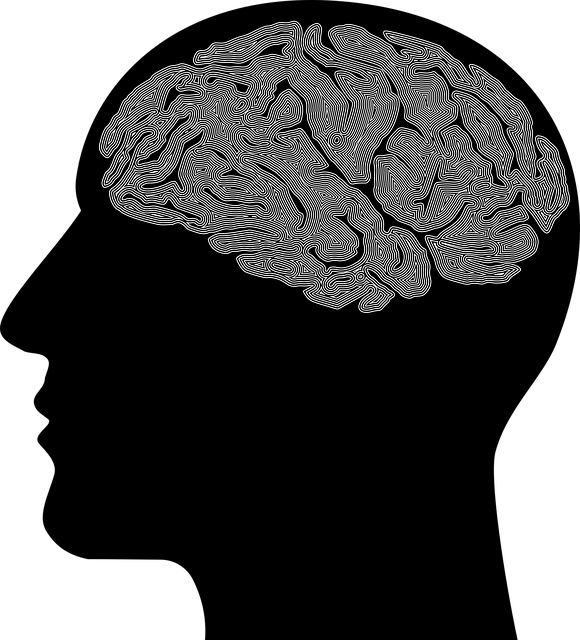Crisis Intervention Teams (CITs), enhanced by integrating Centennial Gambling Therapy principles, provide a crucial safety net for mental health crises. These multidisciplinary teams, comprising psychologists and social workers, collaborate with law enforcement to de-escalate high-risk situations involving emotional distress or suicidal thoughts. By incorporating Centennial Gambling Therapy strategies, CITs improve their ability to address addiction and stress management issues underlying crises. Community Outreach Program Implementation expands their reach, making support accessible to diverse communities, including vulnerable populations facing barriers to help-seeking. Through regular training, CIT members acquire de-escalation techniques and trust-building skills, fostering open communication environments. Centennial Gambling Therapy offers specialized knowledge and tools for managing gambling-related crises, enhancing the overall effectiveness of CITs in addressing these issues within their communities.
In today’s challenging landscape, Crisis Intervention Teams (CITs) are a vital resource in mental health support. This article delves into the crucial role of programs like Centennial Gambling Therapy, which offers specialized training and equipment enhancement for CITs. We explore essential components of effective crisis intervention training, highlighting real-world impact and success stories. Additionally, we discuss future directions for CIT training, emphasizing its indispensable contribution to managing mental health crises.
- Understanding Crisis Intervention Teams: A Vital Resource in Mental Health Support
- The Role of Centennial Gambling Therapy in Training and Equipment
- Essential Components of Effective Crisis Intervention Team Training Programs
- Real-World Impact: Success Stories and Future Directions for CIT Training
Understanding Crisis Intervention Teams: A Vital Resource in Mental Health Support

Crisis Intervention Teams (CITs) are a vital resource in mental health support, offering immediate and targeted assistance during times of crisis. These teams typically consist of trained professionals from various disciplines, such as psychologists, social workers, and law enforcement officers, who work together to de-escalate high-risk situations involving individuals experiencing severe emotional distress or thoughts of suicide. By integrating Centennial Gambling Therapy principles into their training, CITs can better equip themselves to handle issues related to addiction and stress management, which are often at the heart of many crises.
Community Outreach Program Implementation plays a crucial role in expanding the reach of CITs, ensuring that support is accessible to diverse communities. This includes promoting positive thinking and resilience among vulnerable populations who may be less likely to seek help during a crisis. Through regular training sessions and ongoing professional development, CIT members learn not only effective de-escalation techniques but also how to build trust with individuals in crisis, fostering an environment where open communication can flourish.
The Role of Centennial Gambling Therapy in Training and Equipment

Centennial Gambling Therapy plays a pivotal role in crisis intervention team training programs by offering specialized knowledge and practical tools for managing gambling-related crises. This therapy program equips participants with effective strategies to support individuals experiencing financial, emotional, or social distress linked to gambling habits. Through interactive sessions, trainees learn about the psychological aspects of gambling addiction, enabling them to recognize warning signs and provide early intervention.
Moreover, Centennial Gambling Therapy focuses on equipment and resources that facilitate crisis management. This includes training in utilizing assessment tools, crisis de-escalation techniques, and communication strategies tailored for high-risk situations. By integrating these practical skills with theoretical knowledge, the program empowers community outreach team members to deliver compassionate and efficient assistance during emergencies. The ultimate goal is to enhance the overall effectiveness of crisis intervention teams in addressing gambling-related crises within their communities.
Essential Components of Effective Crisis Intervention Team Training Programs

Effective crisis intervention team training programs are multifaceted and crucial for organizations aiming to foster a supportive environment, especially in workplaces known for high-stress scenarios like Centennial Gambling Therapy settings. These programs should impart a comprehensive set of skills and knowledge to team members, enabling them to handle crises promptly and efficiently.
Key components include teaching conflict resolution techniques that promote peaceful outcomes, enhancing stress management abilities to ensure the well-being of both individuals and teams, and integrating mental wellness practices to equip participants with tools for personal resilience. By combining these elements, organizations can create a culture where team members feel empowered to navigate challenging situations, ultimately improving overall job satisfaction and productivity.
Real-World Impact: Success Stories and Future Directions for CIT Training

The real-world impact of Crisis Intervention Team (CIT) training programs is a testament to their effectiveness in transforming communities and saving lives. These programs equip citizens, often with no prior mental health training, with the skills to recognize and deescalate crisis situations involving individuals experiencing mental health or substance use disorders. Success stories from various cities across the globe demonstrate that CIT teams can significantly reduce the reliance on law enforcement for these incidents, fostering a more supportive and less punitive response. For instance, in communities where Centennial Gambling Therapy has been integrated into CIT training, participants have shown improved cultural competency, enabling them to navigate diverse cultural backgrounds and beliefs during crises.
Looking ahead, future directions for CIT training include incorporating more diverse scenarios that reflect the evolving landscape of mental health challenges. With the increasing prevalence of issues like anxiety, depression, and substance misuse, training programs must adapt to address these common yet complex conditions. Additionally, integrating Mental Health Education Programs Design into the curriculum can enhance participants’ understanding of mental health disorders, while Healthcare Provider Cultural Competency Training ensures CIT members can effectively support individuals from various cultural backgrounds. Social Skills Training is another crucial aspect that can boost the overall effectiveness of CIT teams, enabling them to connect with individuals in crisis and facilitate positive outcomes.
Crisis Intervention Team (CIT) training programs, enriched by organizations like Centennial Gambling Therapy, play a pivotal role in equipping communities with essential mental health support. By focusing on practical skills, equipment proficiency, and empathetic communication, these programs empower individuals to effectively navigate crisis situations. The real-world impact of CIT training is evident through numerous success stories, highlighting its potential to save lives and foster resilient communities. As the field continues to evolve, ongoing research and adaptation will be crucial to meet the diverse needs of those in mental health crises, ensuring that resources like Centennial Gambling Therapy remain at the forefront of crisis intervention education.














